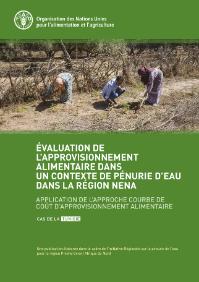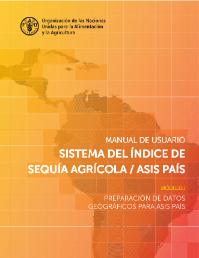Focal point
Location
The Food and Agriculture Organization of the United Nations leads international efforts to defeat hunger. Serving both developed and developing countries, FAO acts as a neutral forum where all nations meet as equals to negotiate agreements and debate policy. FAO is also a source of knowledge and information. We help developing countries and countries in transition modernize and improve agriculture, forestry and fisheries practices and ensure good nutrition for all. Since our founding in 1945, we have focused special attention on developing rural areas, home to 70 percent of the world's poor and hungry people.
Members:
Resources
Displaying 176 - 180 of 5074Évaluation de l’approvisionnement alimentaire dans un contexte de pénurie d’eau dans le région NENA
Ce rapport fait état du diagnostic et de l’évaluation du système d’approvisionnement et de valorisation des ressources hydrauliques en Tunisie en rapport avec la sécurité alimentaire du pays, dans le cadre de l’Initiative régionale sur la rareté de l’eau lancée par la FAO.
Integrating Food into Urban Planning
The integration of food into urban planning is a crucial and emerging topic. Urban planners, alongside the local and regional authorities that have traditionally been less engaged in food-related issues, are now asked to take a central and active part in understanding the way food is produced, processed, packaged, transported, marketed, consumed, disposed of and recycled in our cities.
Manual para la preparación de datos geográficos para la herramienta de ASIS-País
Este manual tiene como objetivo familiarizar a los usuarios de la herramienta FAO-ASIS País con la conversión de datos del Sistema de Información Geográfica (SIG) a los formatos adecuados para alimentar la herramienta.
Este manual (1) forma parte de una serie de 3 manuales para el uso de la herramienta ASIS-PaísManual de usuario donde se describen los pasos a seguir para transformar los datos de información geográfica como mapas de uso actual de la tierra y regiones administrativas en el formato que requiere la herramienta ASIS-PAÍS.Angola and FAO
Angola and FAO have engaged in close cooperation since the country joined the Organization in
1977. Owing to the 27-year civil war, early FAO interventions were focused on emergency assistance,including resettling of vulnerable rural households and the provision of agricultural inputs for therapid resumption of food production. There has since been a shift towards recovery and longer-termdevelopment goals, including assistance in the formulation and implementation of projects in line withState of Mediterranean Forests 2018
The Mediterranean region has more than 25 million hectares of Mediterranean forests and about 50 million hectares of other Mediterranean wooded lands. They make crucial contributions to rural development, poverty alleviation, food security, as well as, the agricultural, water, tourism, and energy sectors. Changes in climate, societies, and lifestyles to create appropriate financial incentives and tools.











